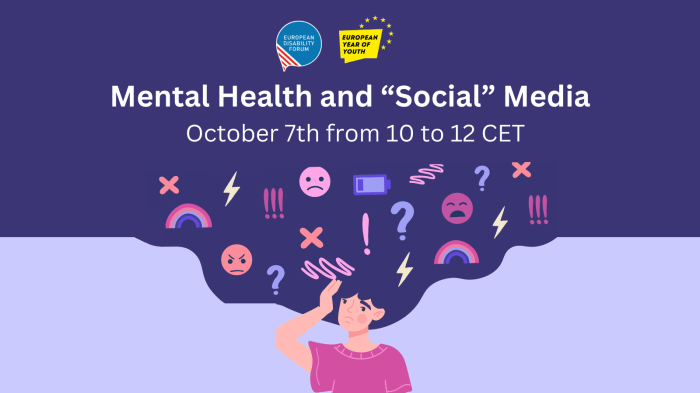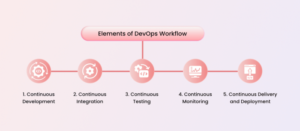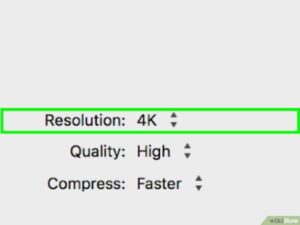
Social networking and mental health are increasingly intertwined in our digital age, raising critical questions about how our online interactions shape our emotional well-being. With millions engaging on platforms daily, it’s essential to explore both the beneficial connections formed and the potential pitfalls that come with excessive use. Understanding this dynamic is key for anyone navigating the complexities of social media today.
As we delve deeper, we’ll uncover the positive effects social networking can have on mental well-being, such as building support networks and enhancing feelings of belonging. Conversely, we’ll also address the darker side, including the anxiety and depression that often accompany constant online engagement. By examining statistics and strategies for healthy usage, we aim to provide a comprehensive view of this multifaceted relationship.
The Impact of Social Networking on Mental Health
Social networking has become an integral part of modern life, shaping how individuals connect, share, and interact. As people increasingly turn to platforms like Facebook, Instagram, and Twitter, understanding the implications of these interactions on mental health is crucial. While social networking can foster a sense of community and support, it also has the potential to lead to negative mental health outcomes when usage becomes excessive.
Positive Effects of Social Networking on Mental Well-Being
Social networking can significantly enhance mental well-being by providing avenues for social connection and emotional support. Many users find community and belonging in online spaces, especially those who may feel isolated in their daily lives.
- Connection and Support: Platforms allow users to connect with friends and family, offering emotional support and fostering relationships that can reduce feelings of loneliness.
- Access to Information: Social media serves as a tool for sharing mental health resources, news, and awareness campaigns that educate users on various mental health issues.
- Community Building: Niche communities on social media can provide individuals with a safe space to discuss shared experiences, providing affirmation and understanding.
Negative Impacts of Excessive Social Media Use on Mental Health
While social media can be beneficial, excessive use can lead to adverse mental health effects. Spending too much time online can create unrealistic standards and exacerbate feelings of inadequacy or anxiety.
- Increased Anxiety and Depression: Studies show a correlation between heavy social media use and the prevalence of anxiety and depression, as users often compare themselves to idealized representations of others’ lives.
- Addiction and Dependency: The compulsive need to check notifications can lead to social media addiction, negatively affecting productivity and real-life relationships.
- Cyberbullying and Harassment: Online interactions can foster negative experiences such as bullying and harassment, which can have severe repercussions on mental health.
Statistics and Studies Correlating Social Networking Usage with Mental Health Outcomes
Numerous studies highlight the relationship between social networking and mental health outcomes. For example, a study published in the journal “Computers in Human Behavior” found that individuals who spend more than two hours per day on social media are more likely to report feelings of anxiety and depression.
Research by the Pew Research Center indicates that 59% of U.S. teens have experienced some form of cyberbullying, showcasing the darker side of social networking.
Furthermore, a meta-analysis in the “Journal of Affective Disorders” revealed that the risks associated with social media use can be compounded by factors such as age, gender, and pre-existing mental health conditions. These findings underscore the importance of mindful social media consumption and highlight the need for awareness of its potential impact on mental health.
Strategies for Healthy Social Networking
Navigating the digital landscape of social networking requires a mindful approach, especially when considering mental health. With the growing influence of social media on our daily lives, it is crucial to implement effective strategies that promote well-being while engaging online. This segment Artikels best practices to maintain a healthy relationship with social networking platforms.
Best Practices for Maintaining Mental Health
Establishing a balanced approach to social networking can significantly improve mental health. Here are some effective practices:
- Limit Screen Time: Set specific times for social media use to avoid endless scrolling, which can lead to feelings of anxiety or inadequacy.
- Engage Mindfully: Focus on interactions that bring joy and fulfillment instead of mindless browsing. Consider the emotional impact of each interaction.
- Unfollow Negative Influences: Regularly assess your follow list and remove accounts that trigger negative emotions or self-doubt.
- Take Breaks: Periodically disconnect from social media to recharge. This helps to reset your mental state and reduce dependence on online validation.
Setting Boundaries on Social Media Usage
Creating boundaries around social media use is essential for promoting mental well-being. This involves proactive measures to ensure a healthier online experience:
- Designate Device-Free Zones: Create spaces in your home where devices are not allowed, encouraging face-to-face interactions and reducing screen time.
- Set Time Limits: Use built-in features or apps that notify you when you’ve reached your daily social media limit.
- Schedule Social Media Free Days: Dedicate one day a week to completely abstain from using social media, focusing instead on hobbies or personal connections.
Curating a Positive Online Environment
The content consumed on social media can significantly influence mindset. Curating your online environment is a proactive step toward enhancing mental health:
- Follow Uplifting Accounts: Seek out accounts that promote positivity, mental health awareness, or inspiring stories that resonate with your values.
- Engage with Supportive Communities: Join groups or forums that focus on shared interests or support systems, fostering a sense of belonging.
- Limit Exposure to Negative News: Be selective about the news sources you follow. Choose those that provide constructive perspectives rather than sensationalist coverage.
- Share Positive Content: Contribute to a healthier online environment by sharing posts that uplift others and encourage constructive conversations.
Creating a positive and mindful social networking experience can enhance mental well-being and foster meaningful connections.
The Role of Online Communities in Mental Health Support

As society increasingly turns to digital platforms for connection, online communities are emerging as vital spaces for mental health support. These communities offer individuals facing mental health challenges a sense of belonging, understanding, and access to resources that may not be available in their immediate physical environments. The power of shared experiences can significantly enhance personal healing and community resilience.Social networking platforms play a crucial role in fostering community support for mental health issues.
They create environments where individuals can connect based on shared experiences, offering solace and understanding. These platforms allow users to express their thoughts and feelings freely without the fear of judgment that may accompany face-to-face interactions. By participating in online communities, individuals can find validation and encouragement, which can be incredibly therapeutic.
Importance of Online Peer Support Groups
Peer support groups online serve as essential lifelines for many individuals experiencing mental health challenges. These groups enable members to share their experiences, coping strategies, and resources, cultivating a supportive atmosphere conducive to healing. The anonymity provided by online platforms can encourage even the most reluctant individuals to seek help and share their stories.The impact of these peer support groups can be profound.
They offer real-time interaction and feedback, allowing members to establish connections that may lead to sustained friendships and networks of support. Here are some critical reasons why these online communities are vital:
- Accessibility: Individuals can join from anywhere, removing barriers such as transportation or geographic limitations.
- Reduced Stigma: Online settings often provide a level of anonymity that can ease the stigma surrounding mental health discussions.
- Diverse Perspectives: Members from various backgrounds share their unique experiences, offering a broader understanding of mental health issues.
- 24/7 Availability: Support is available anytime, allowing individuals to seek help whenever they need it most.
Several successful online mental health initiatives have harnessed the power of social networking to provide effective support. For instance, platforms like “7 Cups” offer trained listeners and peer support in a safe online environment. “Mental Health America” utilizes social media to raise awareness and provides resources for individuals seeking help. Another example is the “Wellness Recovery Action Plan” (WRAP) groups on Facebook, which provide structured peer support that helps individuals create personalized wellness plans.
Online communities can bridge the gap between isolation and connection, making a significant difference in individuals’ mental health journeys.
Ending Remarks

To wrap up, the relationship between social networking and mental health is a nuanced one that requires awareness and intentionality. Balancing the benefits of connection with the need for mental well-being can empower individuals to create a healthier online experience. By adopting best practices and fostering positive communities, we can harness the power of social networks to uplift, rather than undermine, our mental health.
Query Resolution
Can social networking lead to mental health issues?
Yes, excessive use of social networking can contribute to mental health issues like anxiety, depression, and loneliness.
How can I set boundaries on social media?
Setting boundaries can include limiting screen time, unfollowing negative accounts, and scheduling offline activities.
What are the signs of unhealthy social media usage?
Signs include feeling anxious or depressed after using social media, neglecting offline relationships, and losing track of time while online.
Can online communities be beneficial for mental health?
Absolutely! Online communities can provide support, shared experiences, and a sense of belonging for individuals facing mental health challenges.
What role do statistics play in understanding social networking’s impact?
Statistics help to highlight trends and correlations between social media usage and mental health outcomes, informing better usage practices.





